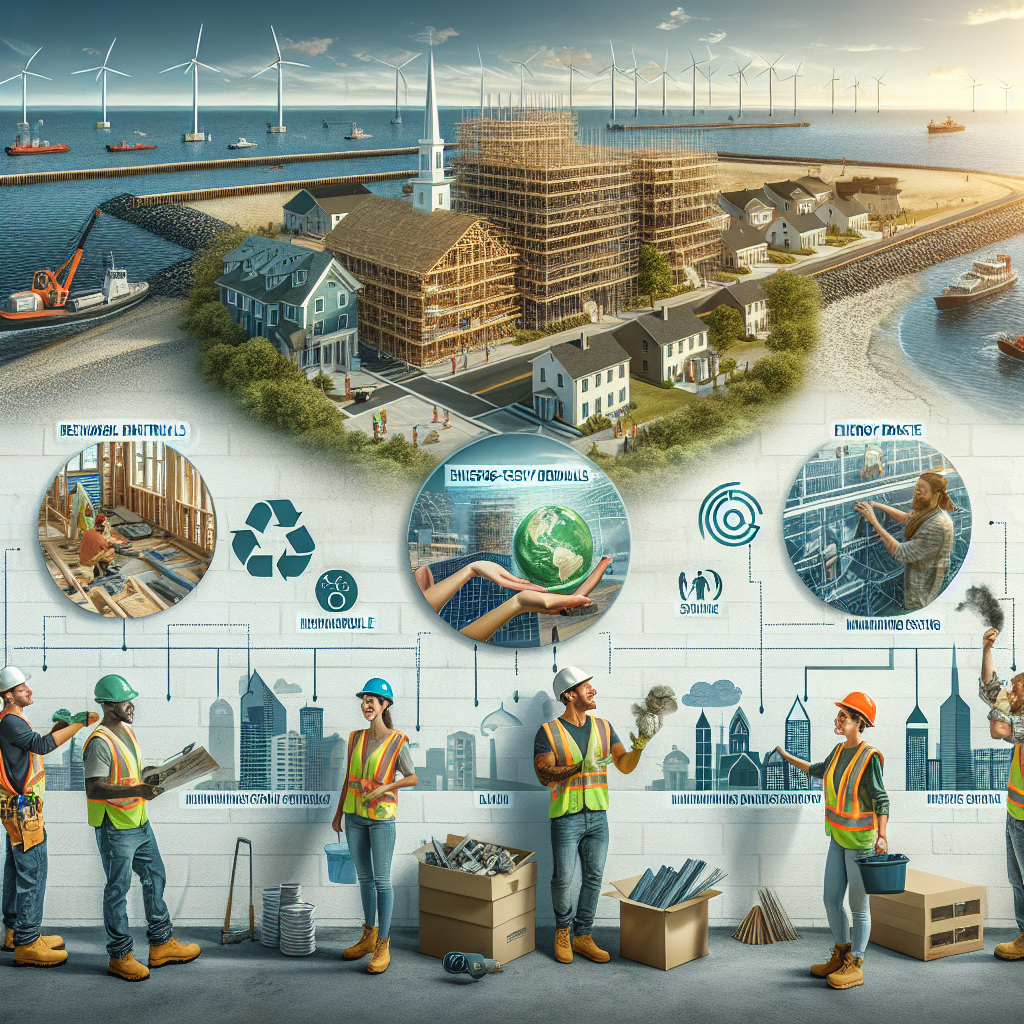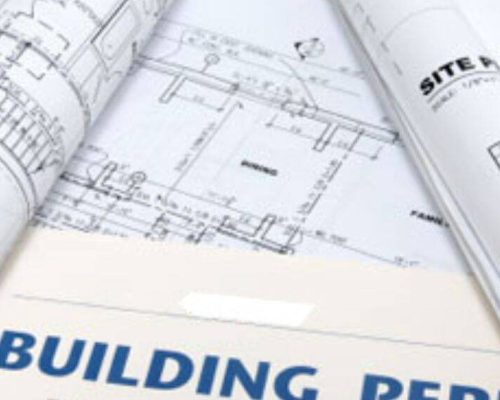The Benefits of Using Recycled Materials in Sustainable Building Practices
Sustainable building practices have become increasingly important in the construction industry, and for good reason. With the growing concern for the environment and the need to reduce our carbon footprint, it is crucial for contractors in Delaware to adopt sustainable building practices. One of the key components of sustainable building is the use of recycled materials. In this article, we will explore the benefits of using recycled materials in sustainable building practices for Delaware contractors.
First and foremost, using recycled materials in construction reduces the amount of waste that ends up in landfills. According to the Environmental Protection Agency (EPA), construction and demolition waste accounts for about 40% of the total waste in the United States. By using recycled materials, contractors can divert a significant amount of waste from landfills, reducing the environmental impact of their projects. This not only benefits the environment but also helps to conserve natural resources.
In addition to reducing waste, using recycled materials also helps to lower the cost of construction. Recycled materials are often less expensive than new materials, making them a cost-effective option for contractors. This is especially beneficial for smaller contractors who may have limited budgets. By using recycled materials, contractors can save money without compromising on the quality of their projects.
Moreover, using recycled materials can also contribute to the overall sustainability of a building. Recycled materials are often more energy-efficient than new materials. For example, using recycled steel in construction can save up to 75% of the energy required to produce new steel. This not only reduces the carbon footprint of the building but also helps to lower energy costs in the long run. Additionally, recycled materials such as insulation can improve the energy efficiency of a building, reducing the need for heating and cooling and further lowering energy costs.
Another benefit of using recycled materials in sustainable building practices is the potential for tax incentives and certifications. Many states, including Delaware, offer tax incentives for using recycled materials in construction. These incentives can help contractors offset the cost of using recycled materials and make sustainable building practices more financially feasible. Furthermore, using recycled materials can also contribute to obtaining green building certifications such as LEED (Leadership in Energy and Environmental Design). These certifications not only demonstrate a commitment to sustainability but also increase the value and marketability of a building.
Aside from the environmental and financial benefits, using recycled materials also has a positive impact on the local community. By using recycled materials, contractors can support local recycling facilities and create jobs in the recycling industry. This not only helps to boost the local economy but also promotes a circular economy where materials are reused and recycled instead of being discarded.
It is important to note that using recycled materials does not mean sacrificing quality. In fact, many recycled materials are just as durable and reliable as new materials. For example, recycled concrete has been found to have similar strength and durability as new concrete. Additionally, with advancements in technology, recycled materials are becoming more readily available and can be sourced from reputable suppliers.
In conclusion, the benefits of using recycled materials in sustainable building practices for Delaware contractors are numerous. From reducing waste and costs to improving energy efficiency and supporting the local community, using recycled materials is a win-win situation for both the environment and the construction industry. As contractors, it is our responsibility to adopt sustainable building practices and make a positive impact on the world we live in. By incorporating recycled materials into our projects, we can contribute to a more sustainable future for Delaware and beyond.
Incorporating Renewable Energy Sources in Delaware’s Sustainable Construction Projects

Sustainable building practices have become increasingly important in the construction industry, and Delaware contractors are no exception. With the growing concern for the environment and the need to reduce carbon emissions, incorporating renewable energy sources in construction projects has become a top priority. In this article, we will explore the benefits and challenges of using renewable energy sources in sustainable construction projects in Delaware.
One of the main benefits of incorporating renewable energy sources in construction projects is the reduction of carbon emissions. Traditional construction methods rely heavily on fossil fuels, which contribute significantly to greenhouse gas emissions. By using renewable energy sources such as solar, wind, and geothermal energy, contractors can significantly reduce the carbon footprint of their projects. This not only benefits the environment but also helps contractors meet the increasing demand for sustainable construction practices.
In addition to reducing carbon emissions, using renewable energy sources can also lead to cost savings for contractors. While the initial investment may be higher, the long-term savings from reduced energy costs can be significant. For example, solar panels can generate electricity for a building, reducing the need for traditional energy sources and resulting in lower utility bills. This can also be a selling point for clients who are looking for sustainable buildings that are cost-effective in the long run.
However, incorporating renewable energy sources in construction projects does come with its own set of challenges. One of the main challenges is the initial cost of installation. While the long-term savings may be significant, the upfront investment can be a barrier for some contractors. To overcome this challenge, contractors can explore financing options such as loans or grants specifically designed for sustainable construction projects. In Delaware, the Green Energy Fund provides financial assistance to businesses and homeowners for renewable energy projects.
Another challenge is the availability of renewable energy sources in certain areas. For example, wind energy may not be feasible in all parts of Delaware due to geographical limitations. In such cases, contractors can explore other renewable energy options such as solar or geothermal energy. It is essential for contractors to conduct thorough research and feasibility studies before deciding on the type of renewable energy source to incorporate in their projects.
Apart from the benefits and challenges, there are also certain regulations and policies that contractors need to be aware of when incorporating renewable energy sources in construction projects in Delaware. The state has set a goal to generate 25% of its electricity from renewable sources by 2025. This means that contractors need to ensure that their projects comply with the state’s renewable energy standards. They also need to obtain the necessary permits and approvals from the Delaware Department of Natural Resources and Environmental Control (DNREC).
In conclusion, incorporating renewable energy sources in sustainable construction projects in Delaware has numerous benefits, including reducing carbon emissions and cost savings. However, it also comes with its own set of challenges, such as the initial cost of installation and availability of renewable energy sources in certain areas. Contractors need to be aware of the regulations and policies in place and conduct thorough research before incorporating renewable energy sources in their projects. With the increasing demand for sustainable construction practices, it is crucial for Delaware contractors to embrace renewable energy sources and contribute to a greener and more sustainable future.
Maximizing Energy Efficiency in Sustainable Building Design for Delaware Contractors
Sustainable building practices have become increasingly important in the construction industry, and Delaware contractors are no exception. With the growing concern for the environment and the need to reduce carbon emissions, it is crucial for contractors to incorporate energy-efficient design strategies into their building projects. Not only does this benefit the environment, but it also has financial benefits for both the contractor and the building owner.
One of the key ways to maximize energy efficiency in sustainable building design is through proper insulation. In Delaware, where the climate can range from hot and humid summers to cold and snowy winters, insulation is crucial for maintaining a comfortable indoor temperature. By using high-quality insulation materials, contractors can reduce the amount of energy needed to heat or cool a building, resulting in lower energy bills for the building owner.
Another important aspect of sustainable building design is the use of energy-efficient windows. In Delaware, where the sun can be intense during the summer months, windows that are designed to block out heat can greatly reduce the need for air conditioning. On the other hand, during the colder months, windows that allow for natural light to enter can help to warm up a building, reducing the need for artificial lighting. This not only saves energy but also creates a more comfortable and inviting space for occupants.
In addition to insulation and windows, incorporating renewable energy sources into building design is another way to maximize energy efficiency. Delaware has a strong commitment to renewable energy, with a goal to have 25% of its energy come from renewable sources by 2025. Contractors can take advantage of this by incorporating solar panels or geothermal systems into their building projects. These renewable energy sources not only reduce the building’s carbon footprint but also provide long-term cost savings for the building owner.
Another important aspect of sustainable building design is the use of energy-efficient lighting. Traditional incandescent light bulbs are highly inefficient, wasting a significant amount of energy as heat. By using LED or CFL bulbs, contractors can greatly reduce the energy consumption of a building. Additionally, incorporating natural lighting through skylights or large windows can further reduce the need for artificial lighting during the day.
Water conservation is also a crucial aspect of sustainable building design. In Delaware, where water resources are limited, it is important for contractors to incorporate water-saving features into their building projects. This can include low-flow toilets and faucets, as well as rainwater harvesting systems. By reducing water consumption, contractors can not only help to conserve this valuable resource but also save the building owner money on their water bills.
In addition to these specific strategies, there are also general principles that contractors should keep in mind when designing sustainable buildings. These include using locally sourced materials to reduce transportation emissions, incorporating green spaces and vegetation to reduce the urban heat island effect, and designing for natural ventilation to reduce the need for air conditioning.
It is also important for contractors to educate their clients on the benefits of sustainable building practices. Many building owners may not be aware of the long-term cost savings and environmental benefits of incorporating energy-efficient design strategies into their buildings. By educating them on these benefits, contractors can help to promote the adoption of sustainable building practices in Delaware.
In conclusion, maximizing energy efficiency in sustainable building design is crucial for Delaware contractors. By incorporating proper insulation, energy-efficient windows, renewable energy sources, and water-saving features, contractors can not only reduce the environmental impact of their building projects but also provide long-term cost savings for their clients. It is important for contractors to stay informed and up-to-date on the latest sustainable building practices and to educate their clients on the benefits of incorporating these strategies into their projects. By working together, Delaware contractors can help to create a more sustainable and environmentally friendly built environment.










